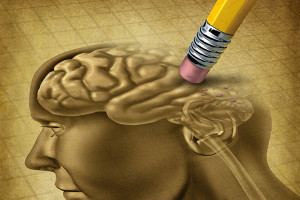 It seems that, once again, Professor Dawkins has tweeted wisely but not too well. This time the offending tweet is a thoroughly defensible position on abortion and Down’s Syndrome, sabotaged once again by the limitations of the medium. Trying to be nuanced on Twitter is like trying to carve netsuke with a sledgehammer.
It seems that, once again, Professor Dawkins has tweeted wisely but not too well. This time the offending tweet is a thoroughly defensible position on abortion and Down’s Syndrome, sabotaged once again by the limitations of the medium. Trying to be nuanced on Twitter is like trying to carve netsuke with a sledgehammer.
My concern at the moment, though, is about the other end of life: not whether certain human lives should be prevented from happening in the first place, but whether existing humans should be obliged to continue breathing, even if they’d rather not. The two issues are not unrelated.
Early this week, a woman named Gillian Bennett—aged 85, in the early stages of dementia—chose to kill herself with Nembutal and whiskey before the disease eroded her beyond the point of acting on her own decisions. Her husband kept her company as she died, but he did not assist her, since that would be contrary to Canadian law. Beforehand, she explained her reasons, both ethical and personal, in a moving website:
I will take my life today around noon. It is time. Dementia is taking its toll and I have nearly lost myself. I have nearly lost me…. Dementia gives no quarter and admits no bargaining. Research tells us that it’s a “silent disease,” one that can lurk for years or even decades before its symptoms become obvious. Ever so gradually at first, much faster now, I am turning into a vegetable…. Every day I lose bits of myself, and it’s obvious that I am heading towards the state that all dementia patients eventually get to: not knowing who I am and requiring full-time care. I know as I write these words that within six months or nine months or twelve months, I, Gillian, will no longer be here. What is to be done with my carcass? It will be physically alive but there will be no one inside….
…I can live or vegetate for perhaps ten years in hospital at Canada’s expense, costing anywhere from $50,000 to $75,000 per year. That is only the beginning of the damage. Nurses, who thought they were embarked on a career that had great meaning, find themselves perpetually changing my diapers and reporting on the physical changes of an empty husk. It is ludicrous, wasteful and unfair…
…The world strains under the weight of an aging population. We are living longer, and our life expectancies continue to grow. By 2045, the ratio of working-age citizens to their elderly dependents will become increasingly burdensome in almost every part of the world. In Canada and the US, the ratio is expected to be sixteen workers for every ten elderly dependents. It is a social and economic disaster in the making. / Yet most people say they would like to live to 90 or 100, or even beyond. / There are many ethical issues here: life extension radically alters people’s ideas of what it is to be human—and not for the better. As we, the elderly, undergo manifold operations and become gaga while taking up a hospital bed, our grandchildren’s schooling, their educational, athletic, and cultural opportunities, will be squeezed dry.
A society’s worth may be judged on how it cares for its most vulnerable members, but perhaps we put too much weight on raw survival. My mother, once a talented and vital woman, is now one of the breathing carcasses described by Gillian Bennett; she hated what was happening to her as the disease progressed, and would hate what she has now become—but unfortunately, choosing to die was never an option for her. On the one hand, society puts pressure on all of us, willy-nilly, to keep ourselves and our loved ones breathing for as long as we possibly can, whatever the cost, and whatever the pain; on the other, my mother’s religious convictions would not have allowed her to pre-empt God’s right to choose when to “call her home”. God, it seems, has society’s permission to be a sadist.
We really need to rethink all this.
